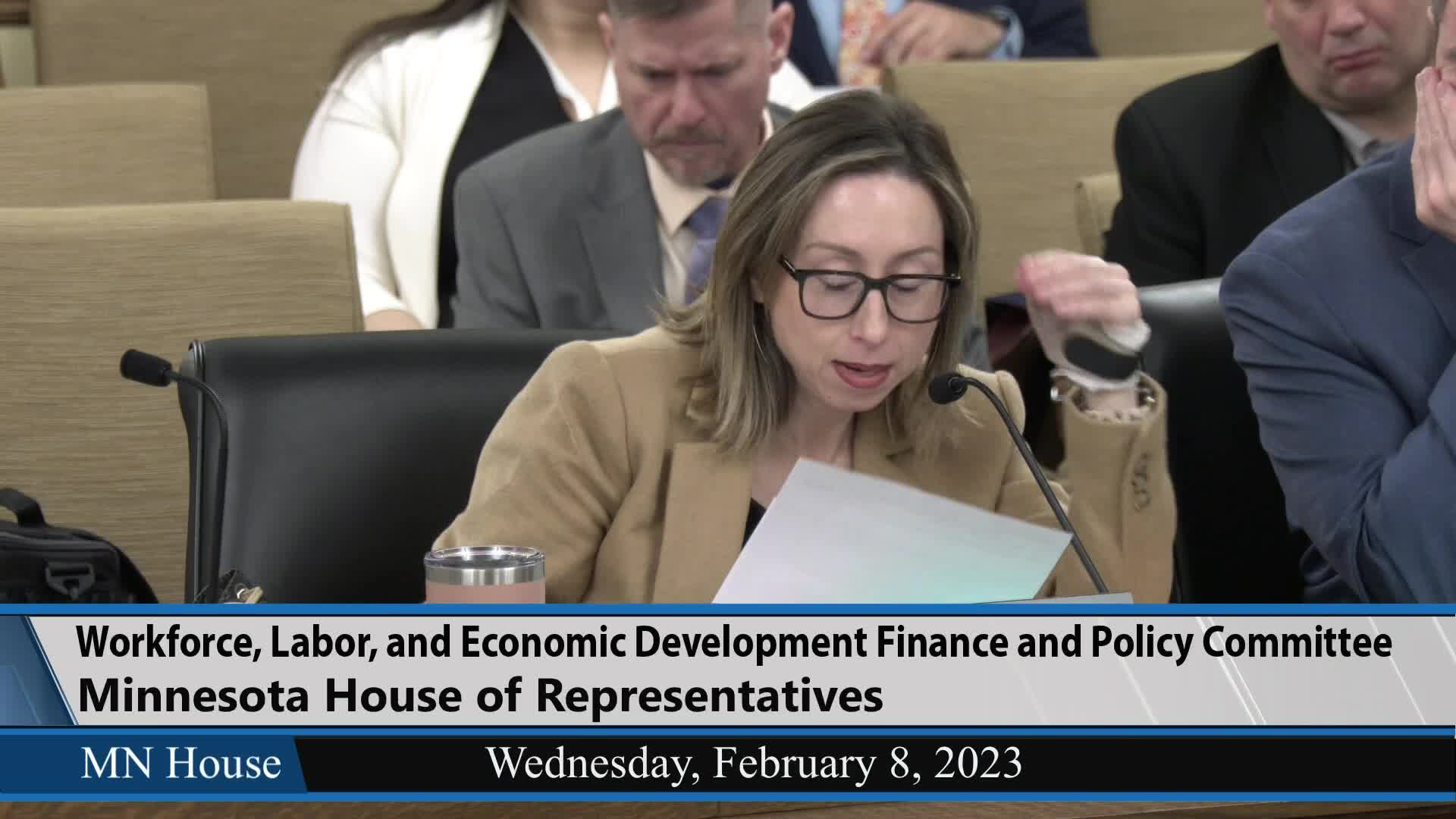Article not found
This article is no longer available. But don't worry—we've gathered other articles that discuss the same topic.
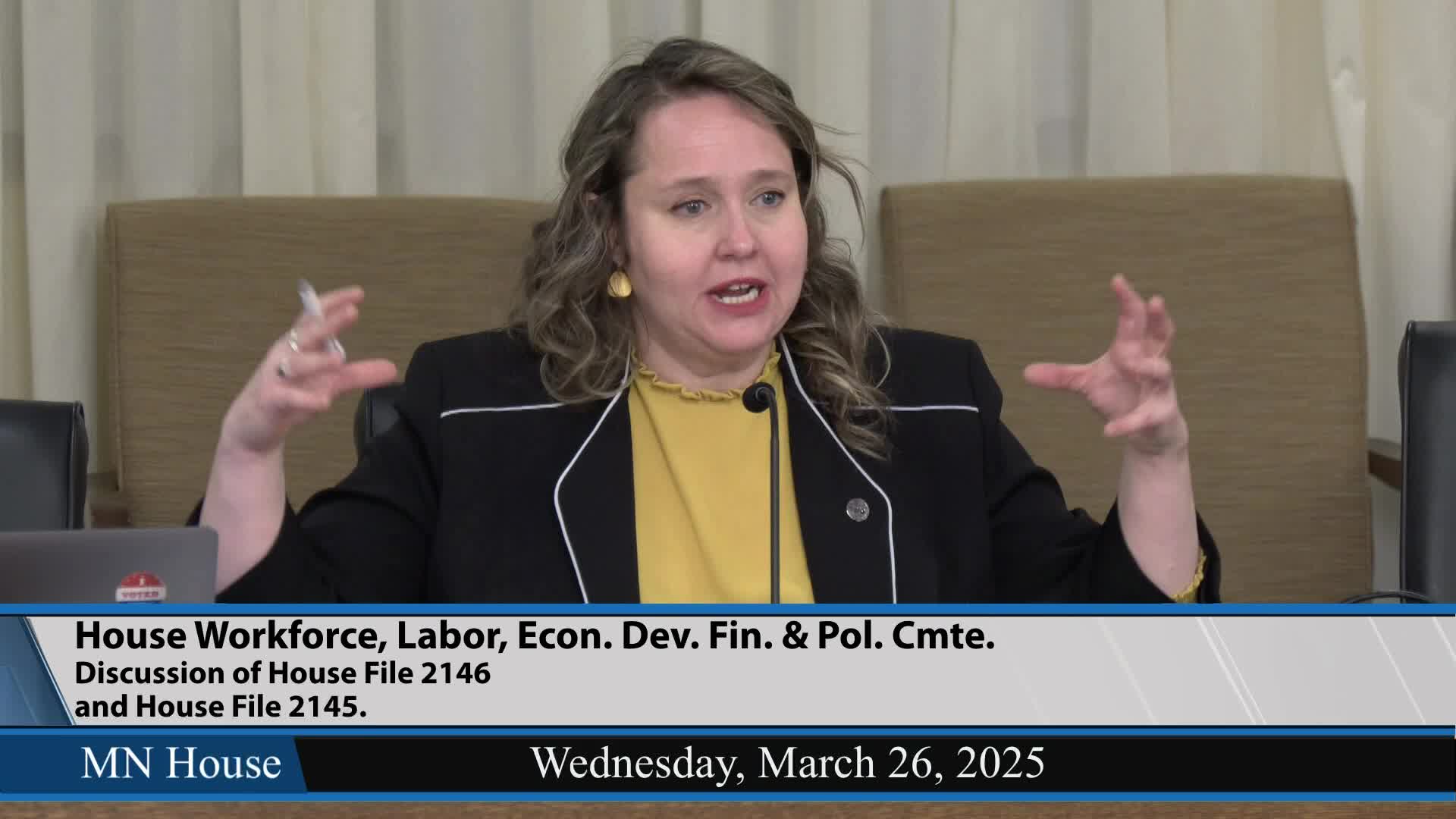
Department of Labor and Industry seeks fee alignment, misclassification enforcement hires and teacher apprenticeship funding
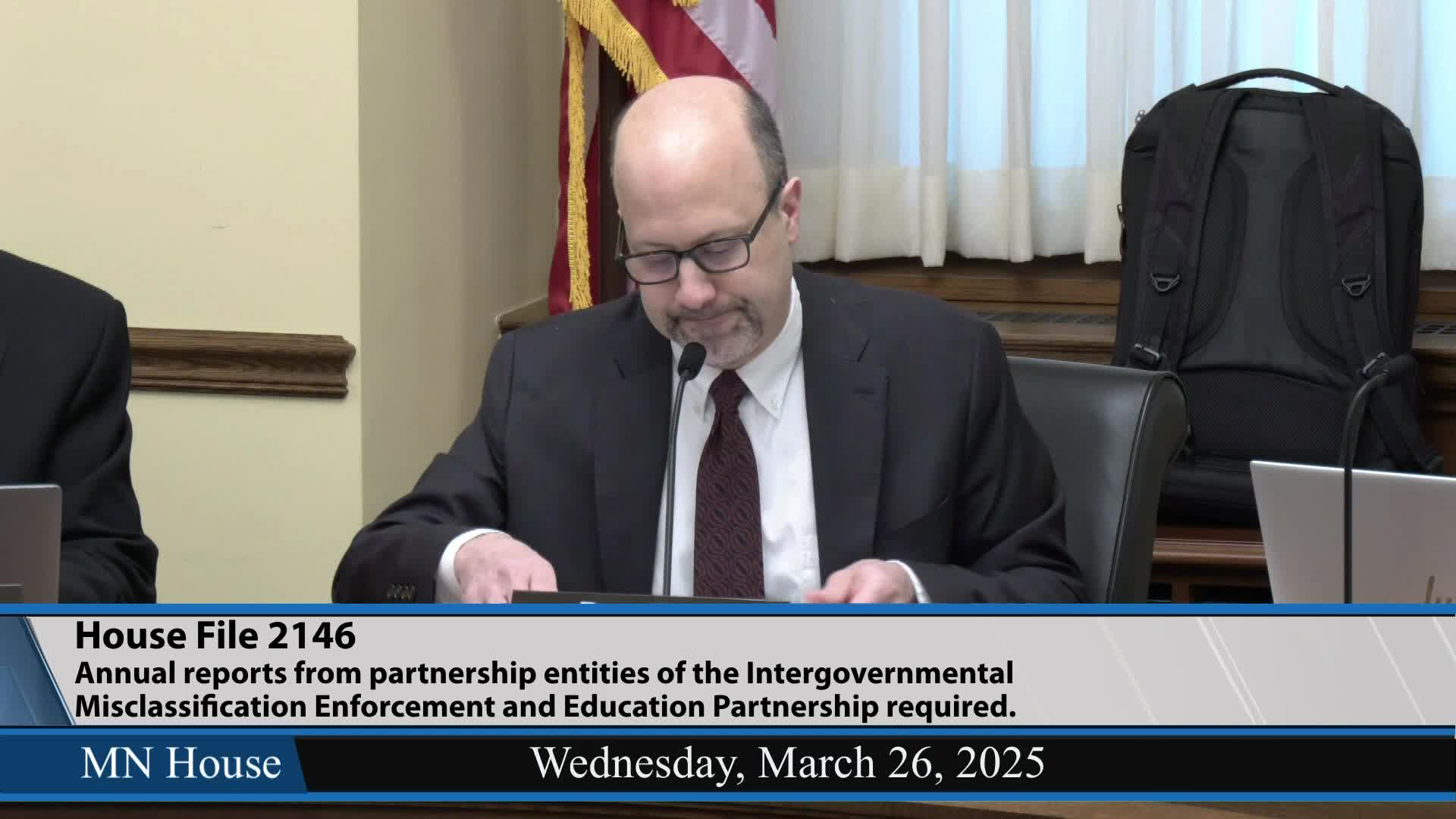
Committee hears evidence of widespread worker misclassification; moves two bills forward for further review
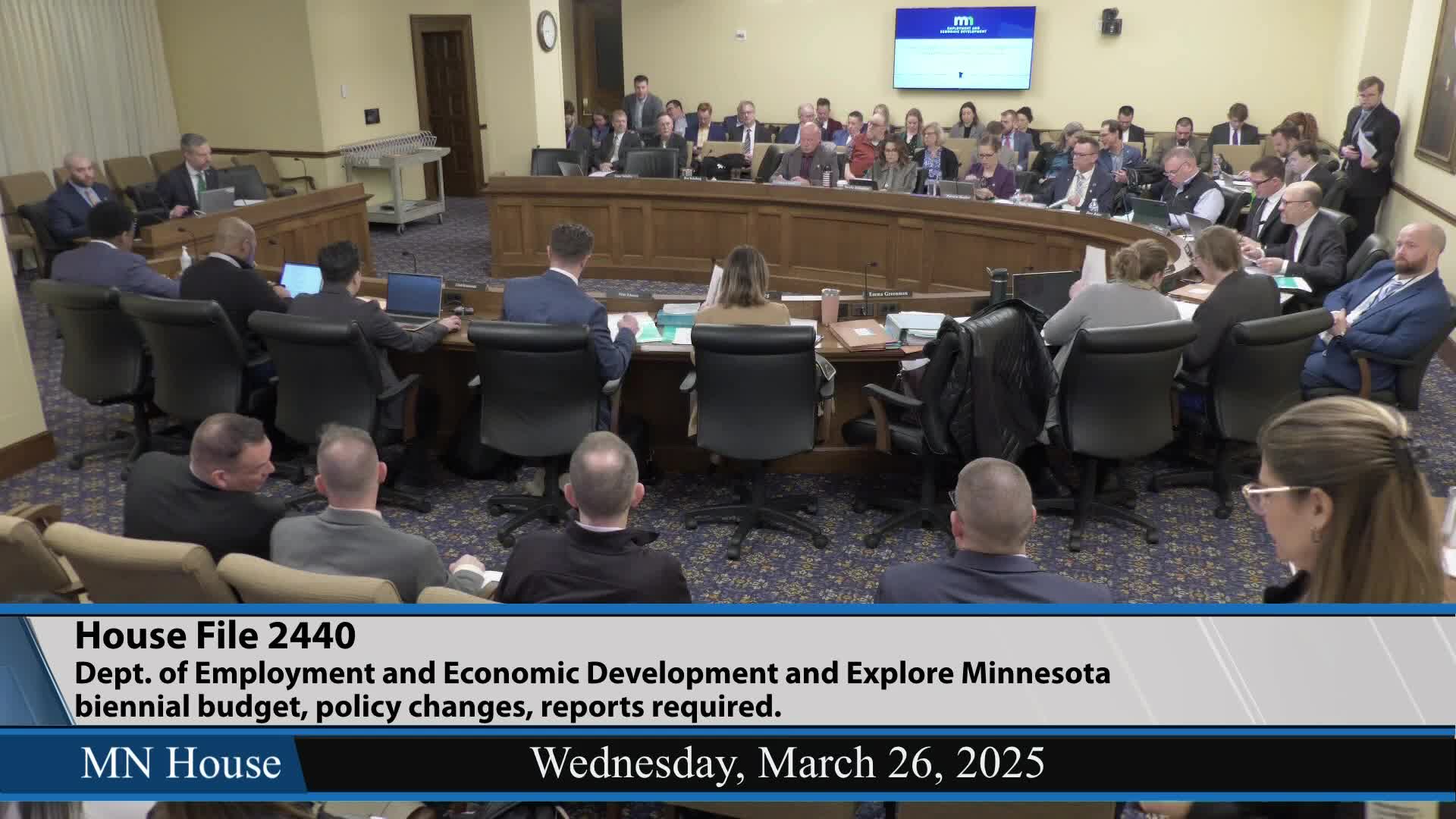
DEED presents governor's budget with new workforce investments and reductions; committee adopts department amendment and lays bill over
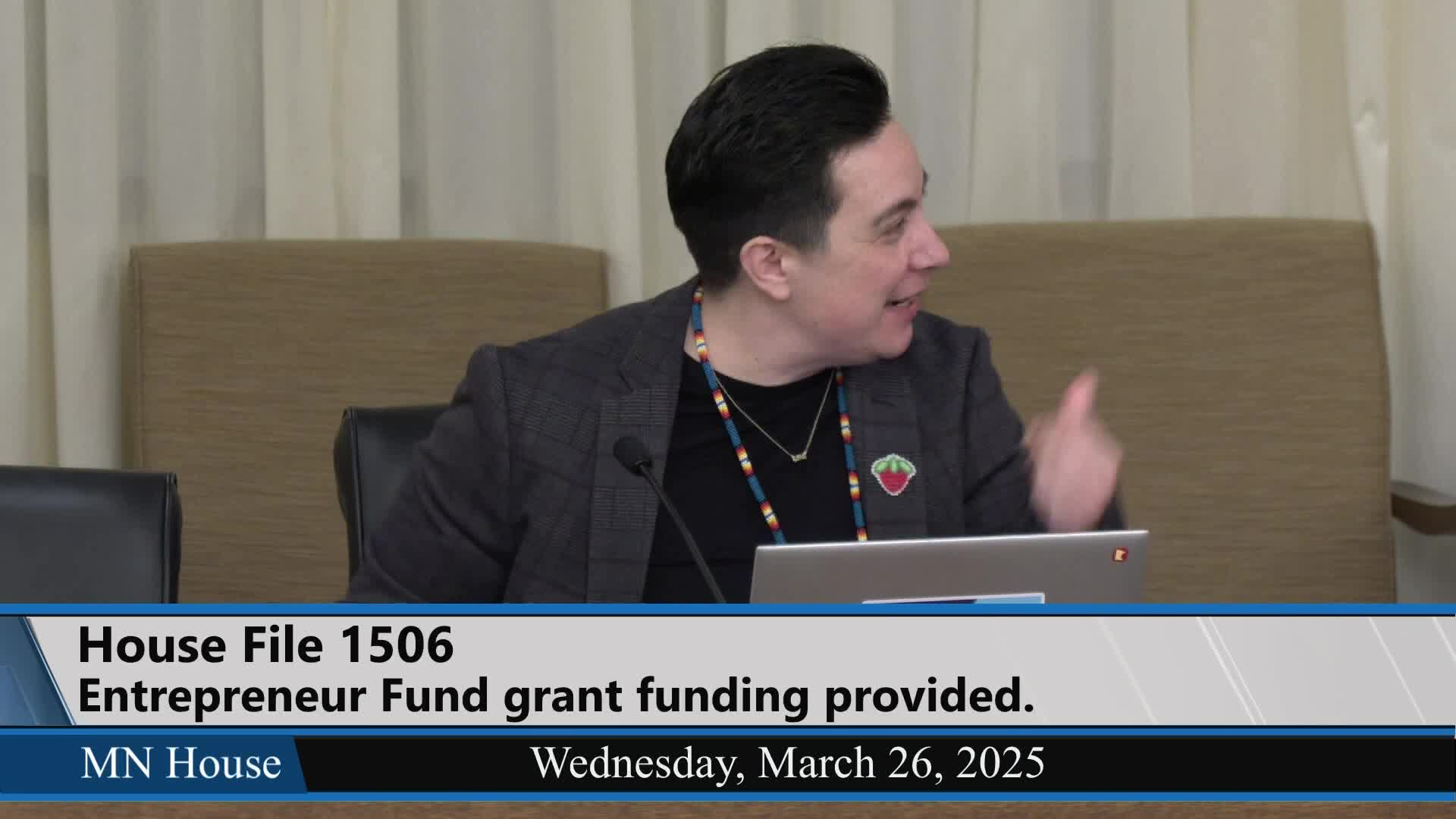
Entrepreneur Fund seeks $1 million revolving loan capital to finance Main Street and startup projects
